Two Sisters Show That Women Can Do Anything
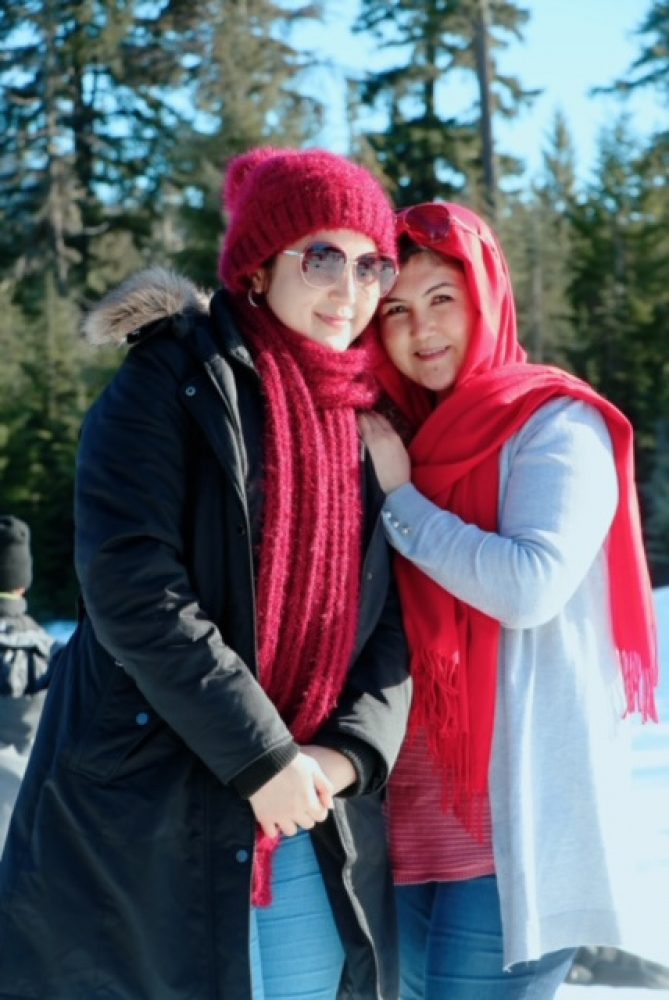
Sisters
Marzia:
I came to America from Afghanistan in January, 2019. My sister Razia came about ten days before me. I call Razia my second mother. She cares for me like her own children.
My mom was in Afghanistan. Now, because Afghanistan is not safe, and she is very sick, we sent her to Pakistan for a cure. It’s one of our dreams to bring her here one day. I hope that she gets well soon.
Razia:
When I first came here, I was very lonely. All day I was crying and I wished that we could go back to Afghanistan. Every day felt like a year for me in America because I couldn’t go outside and I couldn’t talk. I couldn’t do anything. Now I can go to the grocery store and talk with people. I have made friends in my class and also at work.
Marzia:
My husband has taken me to many places. Every summer he takes me to different states of America. By now I have been to to more than 12 states. We went to Oregon, California, Idaho and Utah. We visited the Grand Canyon and Yellowstone. He took me to all these places!
The people in our Afghan community here are good. They help each other. When someone finds out about something good, they tell the other women about it. We find opportunities, resources, nice things for our homes, things like that. Like our friend Debby. She helps refugees with whatever they need. Most of the Afghan women didn’t know about her, so we gave them her number. Now when they can’t get diapers for their babies, they can call her.
We are lucky that we are in America. Here I can work and make some money and send it to my family back in Afghanistan. We have not achieved our goals easily, but it’s very sweet now that we have done it.
Razia:
I have four children: two daughters and two sons. I asked them if they want to go back to Afghanistan, and they said, ‘No, we don’t want to go. We want to stay here. We like our school and friends.”
In the future, I want to continue my story and speak English very fluently. I’m very happy. I’m independent.
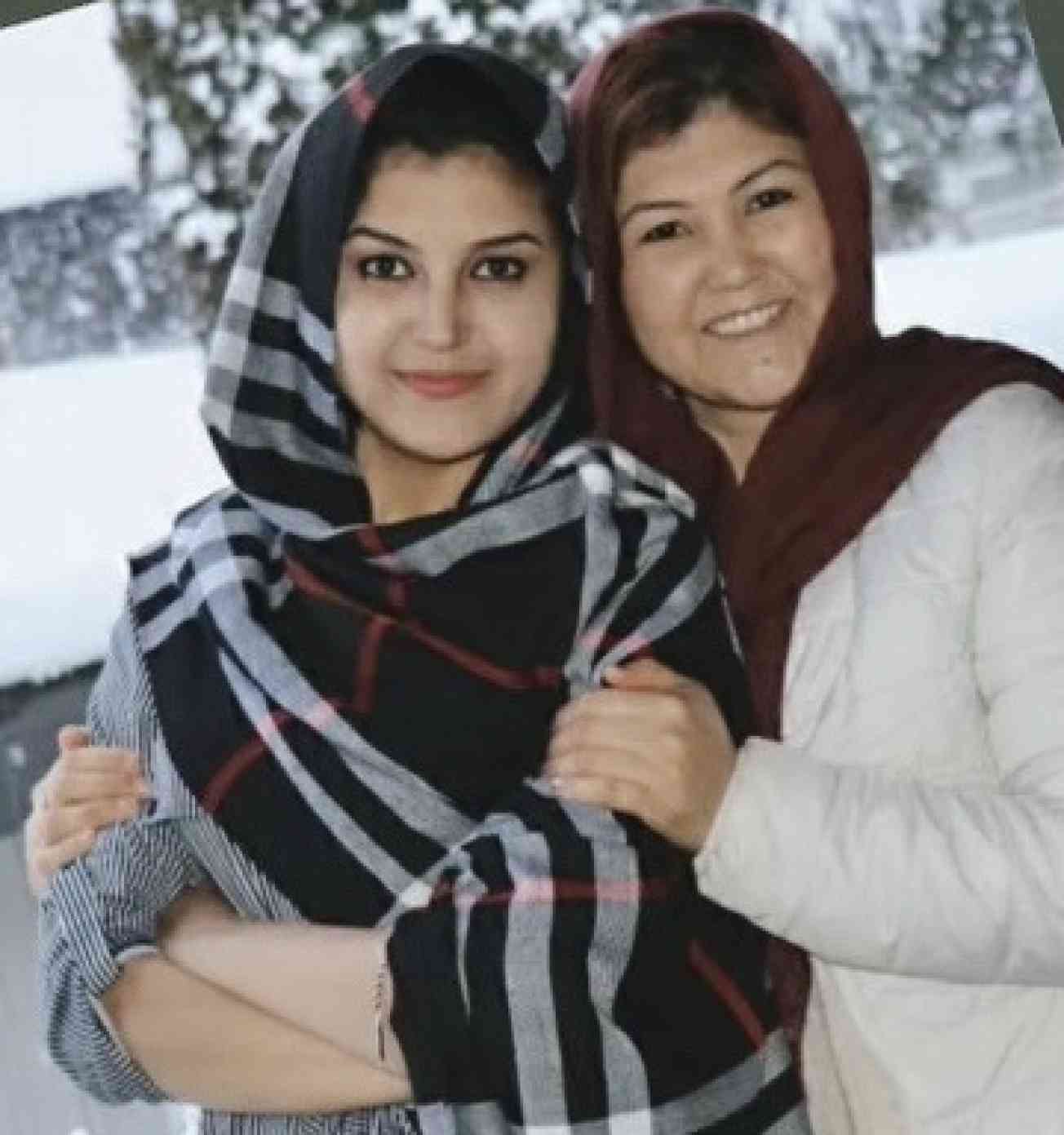
School
Marzia:
Razia worked hard to help me go to school in Afghanistan. I remember that she and my mom worked sewing and cleaning people’s homes. They used the money to send me and my brother to school.
When I came here, after about 16 days my husband told me, ‘Let’s go to college!’ So
he took me to Highline College, I took a short exam to see which class I should be in, and they put me in level three ESL. I was in ESL for one year.
My dream is to go into nursing, to be an RN. I want to help the community. Right now I’m doing the prerequisites: anatomy and physiology. Finals are coming up. It’s been challenging and hard for me. But I have found some good friends in my class who can help me when I have questions. And I go to the teachers’ office hours.
Of course, I want to help my sister learn now that she is in the United States. She and my mom were the ones who helped me go to school and learn English in Afghanistan. So now it’s my responsibility to help her.
Razia:
In my family when we were born, we were poor. So I couldn’t go to school. But I tried to help my sister and my brother go and learn. Then I tried to do the same for my children in Afghanistan. But their future was not clear. Would they get a job? Would they be safe? Would they be alive? So here in America, I work to make sure my children get an education. I always take them to the library. Because their future is secure I know that they will achieve their goals. They will have a good job, they will have a good future.
I’m learning English at REWA (Refugee Women’s Alliance). When I started going there, it was the first time I was ever able to go to school. At first, classes were near my house, so I could walk. Then the REWA moved so I had to take the bus until I got my driver’s license. Most Afghan women said, ‘It’s impossible for us to get three buses and go there. Maybe we will get lost. And it will take us one hour to go and an hour to come back.’ So they didn’t come. But I went. Later I taught a friend to come with me. It’s one of my dreams to study. So even though the school was very far and the time was hard, I kept going.
My father-in-law told me, ‘My daughter, you are very good. You are a good example to show that Afghan women in the US are going to school and getting their license.’ I know before us there were many other Afghani woman who did their best too.
Driver’s License
Marzia:
A job, a car, and English are the first things you need to reach your goals. A car is like shoes. If you don’t have shoes you cannot walk to a high place. Without a car, it’s very hard to go to college and to work.
I remember my first days, when my husband was going to work and I didn’t have a car. My house was far away from where I got groceries. I carried all the bags in my hands and it was raining. I don’t forget those days.
Razia:
Taking the children to appointments was especially hard. Most of the time it was raining, and we had to walk. We got very wet, up to our knees.
At first, my husband helped me to take the bus to school. He took me two times, so I could learn the way to go and what time I had to be there. I couldn’t read or speak English. So when I was going on the bus, I was watching. I would keep in mind that behind the station, there is a building, and it is this color. At another stop, there is a railroad near a river, or a school, or a coffee shop. So I was not reading the street numbers, but I knew it was the right stop because of the things I saw around it. Once I took the wrong bus. I recognized that the road was not the road I always go on. I stopped the bus, got out, and spoke to two Americans. I only knew the word station. I asked, ‘The station?’ Then they showed me the way.
Now all the other Afghan women ask me how to ride the bus. I tell them that in the first days, I didn’t know how either. But my husband goes to work from morning until evening. It’s me who takes care of the children, who takes them to their appointments, who cooks, who cleans, who goes shopping and brings the groceries. So I have to know how to go by bus. It was challenging, but I did it.
Marzia:
My husband gave me driving lessons. After six months, I got my license and my husband got me a car. I started going to the college.
Then my sister was saying, ‘I have to take my driver’s test. Will you help me to practice?’ We practiced early in the morning two or three times a week. She passed the test and got a job. Well, my sister’s family didn’t have a good television. Her children were always asking her when she would buy them one. So the first thing that she bought with her own money was a television. And the second thing she bought were some rugs for her house. The third thing was her car.
She bought her car with her own money. Now she has her own car and she can go to a party, or take the children to the park. Her little son keeps asking her, ‘Mommy what’s camping? My friends say they go camping. When will we go?’ Now maybe she can take them camping this summer. That’s very good!
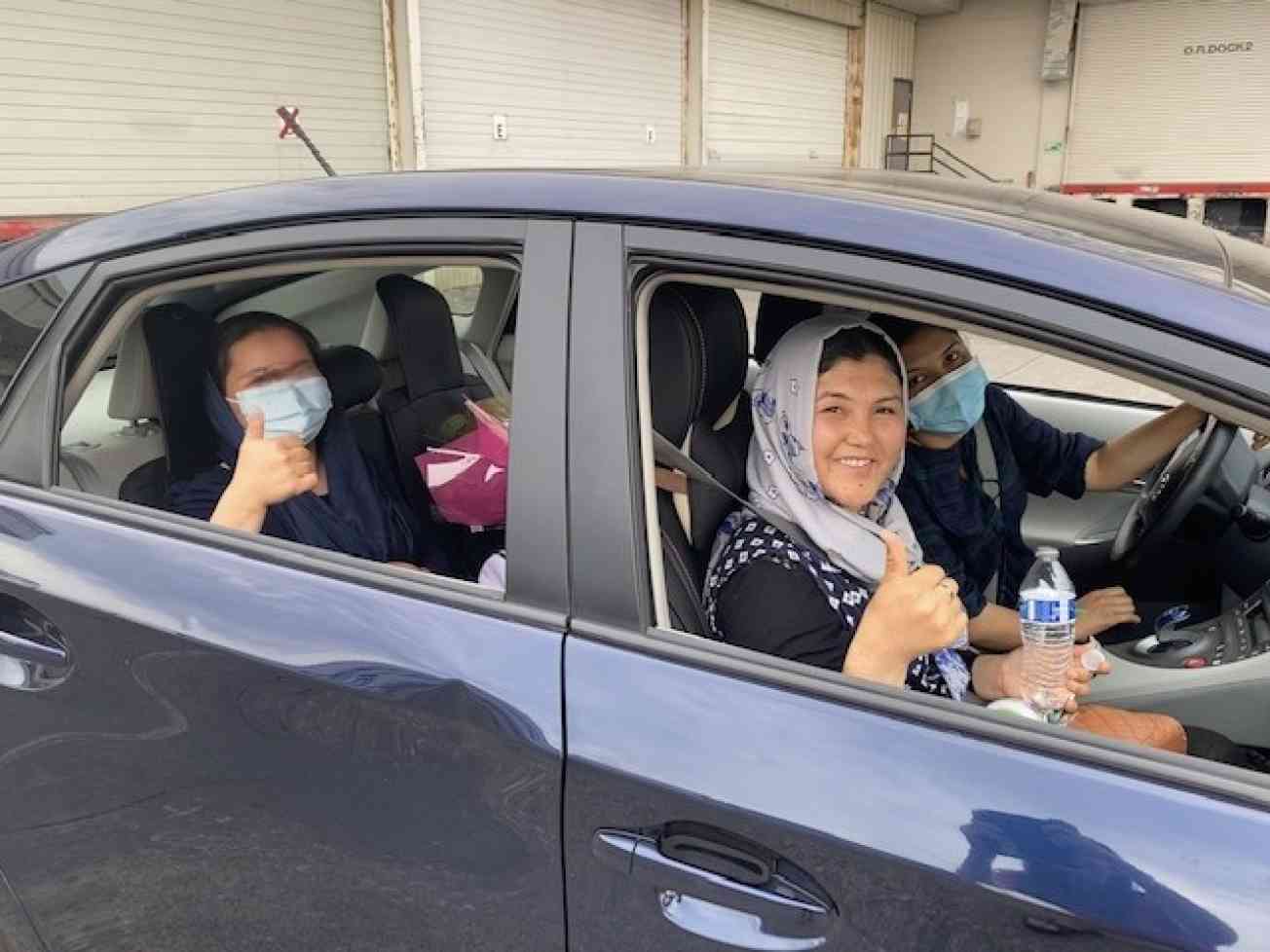
Job and Independence
Marzia:
It’s very hard when you come to a new country. The culture is different. The language is different. The traditions and religious customs are different. It is not traditional for women to work outside the home in Afghanistan.
When I talked to my husband about getting a job, I said, ‘Going outside to see people and to work gives me freedom. It will be good for me.’ He saw that it would be good and said okay.
Razia:
Our friend Sarah found a job for us both at the Outdoor Research Company making masks. That was my first job in America or Afghanistan. I was very excited.
On the first day of my job, I was so worried because I didn’t know how to speak English well. I thought they wouldn’t like it. I also wondered if I would be safe as a woman working with men, but they didn’t disturb us. Everyone was very kind and very respectful to me. We felt very safe at our job.
After we started the job at Outdoor Research Company, they said that they wanted more employees. At that time,
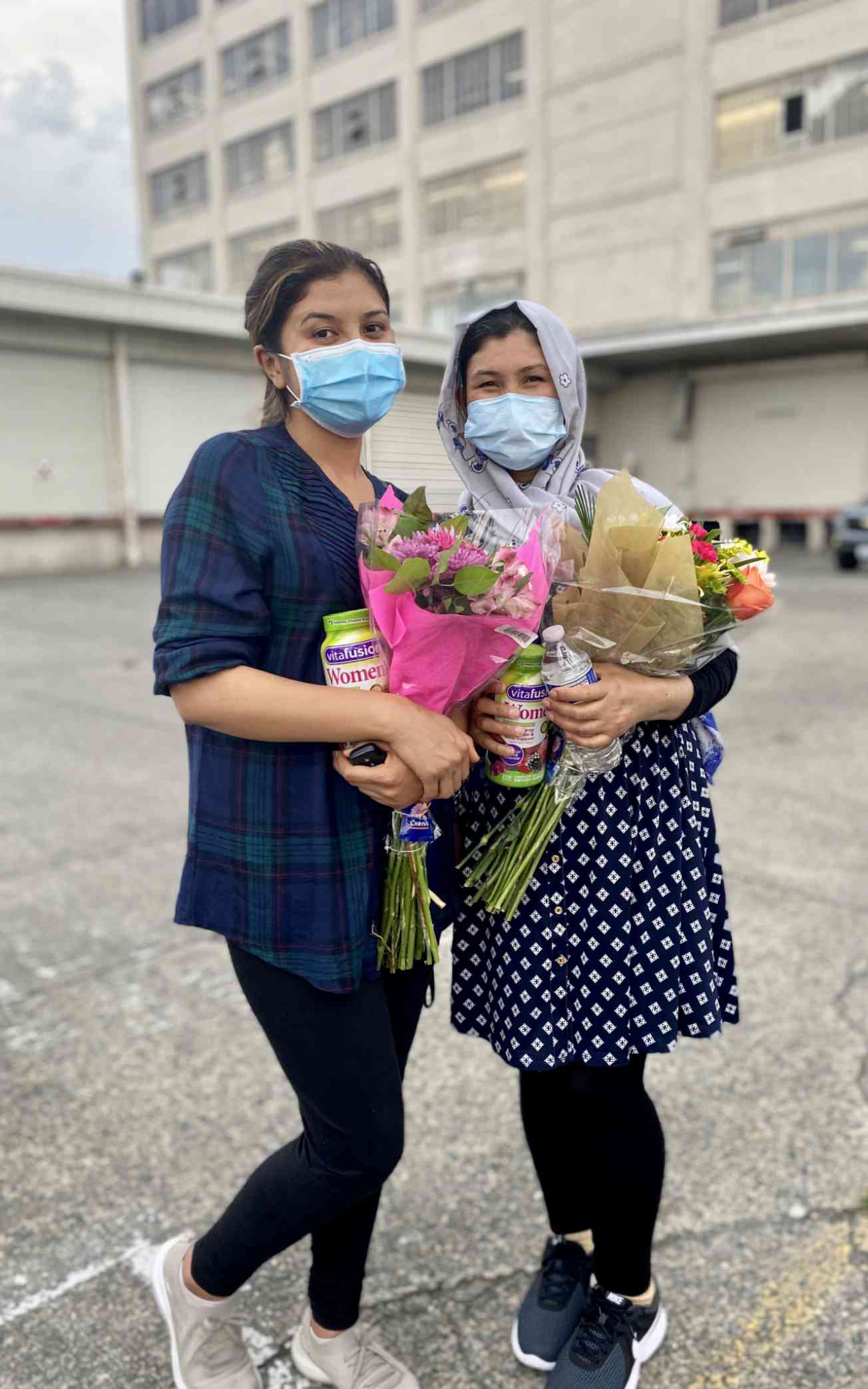
they had a lot of orders for masks. I told that to some other women from Afghanistan who were also wanting to work. They said okay, but they didn’t know how to drive. There is no bus that goes there. I said I would come get them on my way to pick up my sister. There were five women in the carpool. There was a time when one of our friends in the carpool tested positive [for Covid 19]. She was sitting behind me and then I tested positive. Luckily, my sister and the other women were fine. We were quarantined for about 15 days. After that we started to work again. The other women paid me a little money for gas every week so they wouldn’t feel uncomfortable riding for free.
Marzia:
At our job, we met a lot of people from different countries, not only from America. On the day that the job finished and we were laid off, we were crying and hugging each other. We shared our phone numbers and now we text each other back and forth.
Right now, I’m working for a Mexican man I met in my ESL class. He offered me a job selling ice cream in a park. Now every summer he needs me to help him. The unemployment office is helping Razia find a new job.
These things that we have in our life were not easy to get. It is very challenging when you have to ask permission from your family for everything you do. I’m very happy that my husband stands by my side. He’s very good. I really love him.
My father-in-law told me, ‘My daughter, you are very good. You are a good example to show that Afghan women in the US are going to school and getting their license’. I know before us there were many other Afghani women who did their best too.
After Sarah found us this job, many women started working there. They came to me and said, ‘Thank you Marzia. You found this job for us. We never believed we could go outside and work and make money. Now we don’t go to our husbands and say please husband give me $5, I want to buy something. Now we have our own money. We can buy things. We can send money back to our families in our country.’
People are finding out that an Afghan woman can do anything.
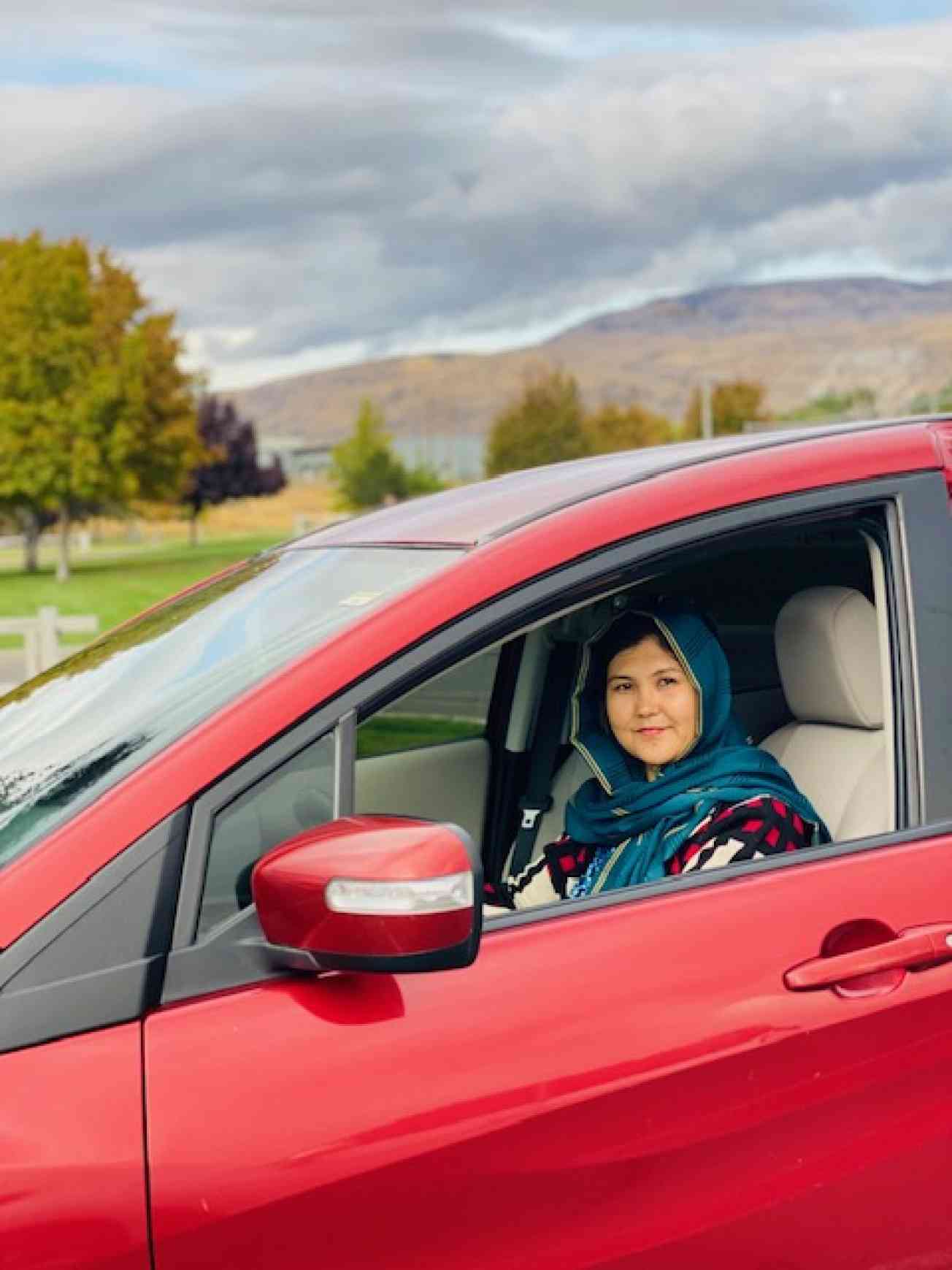
Our team members obtain informed consent from each individual before an interview takes place. Individuals dictate where their stories may be shared and what personal information they wish to keep private. In situations where the individual is at risk and/or wishes to remain anonymous, alias names are used and other identifying information is removed from interviews immediately after they are received by TSOS. We have also committed not to use refugee images or stories for fundraising purposes without explicit permission. Our top priority is to protect and honor the wishes of our interview subjects.